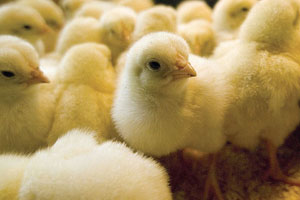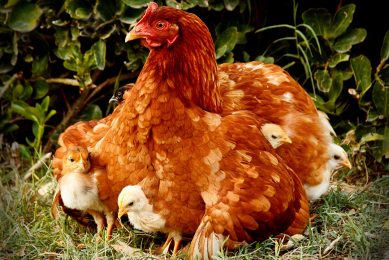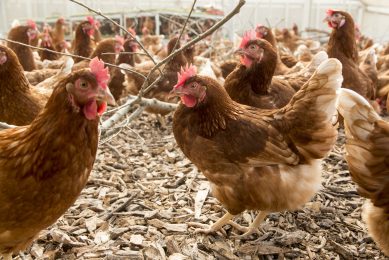Research: ‘Smells’ impact on chick feeding preferences

French researchers have published a paper that investigates the influence of olfactory stimulation in eggs on later feeding preferences. The researchers conclude that exposing eggs late in the incubation period resulted in chicks with a decided preference for odourised foods.
Like mammals, bird embryos are capable of chemosensory learning, but when in the bird’s growth in the egg feeding preferences are formed has not been examined. The researchers tested if the timing of stimulation in chicken embryos could modify the impact of in ovo olfactory stimulation on later food preferences.
Chicken embryos were exposed to an olfactory stimulus for a 4-day period in the middle or toward the end of the incubation period. The chicks were tested for their preference between foods with and without the olfactory stimulus in 3-min choice tests and on a 24-h time scale.
Regardless of the type of food (familiar or novel) or the duration of the test, the control chicks not exposed to the olfactory stimulus consistently showed significant preferences for non-odorised foods. Chicks that were exposed in ovo to the olfactory stimulus did not show a preference for odorised or non-odorised foods. Only those chicks that were exposed to the olfactory stimulus toward the end of the incubation period differed from the controls and incorporated a higher proportion of odorised food into their diets on a 24-h time scale.
This result indicates that olfactory stimulation at the end of embryonic development has a stronger impact on later feeding preferences. The findings contribute to the growing pool of recent data appreciating the impact of olfactory signals on behavior regulation in avian species.
Source: Chemical Senses












